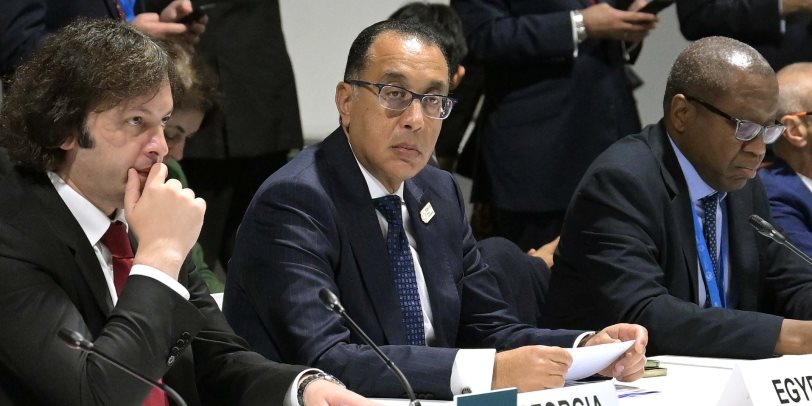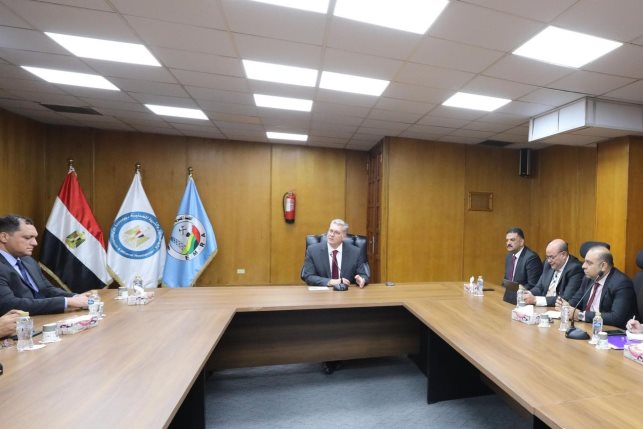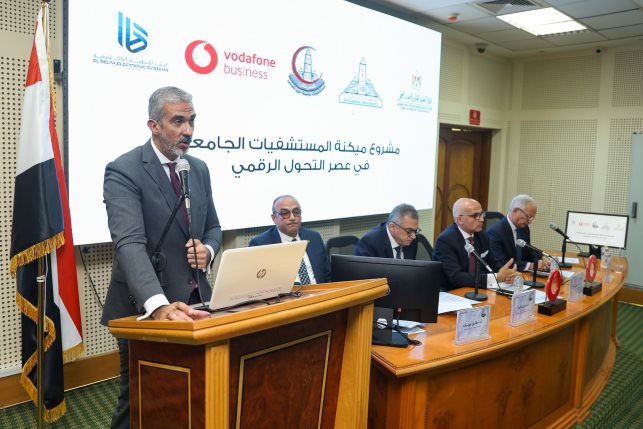PM participates in enhancing climate mitigation roundtable at COP29
Madbouly highlighted Egypt’s initial steps to foster a supportive environment for renewable energy investment, including establishing a preferential feed-in tariff for electricity, which successfully attracted substantial private investment. Additionally, a comprehensive subsidy reform program was launched, enhancing the competitiveness of renewable energy

Egypt’s Prime Minister, Mostafa Madbouly, participated in a roundtable focused on Energy: Enhancing Climate Change Mitigation Efforts on the sidelines of the United Nations Framework Convention on Climate Change’s 29th Conference of the Parties (COP29). During his participation, Prime Minister Madbouly outlined Egypt’s dedication to accelerating energy transition efforts. He detailed Egypt’s ambitious goal of achieving 42% renewable energy in its energy mix by 2030.
Representing Egyptian President Abdel Fattah al-Sisi, Madbouly joined notable figures, including the Prime Ministers of Belgium and Slovakia, the Managing Director of the International Monetary Fund, and the U.S. Special Climate Envoy.
Madbouly highlighted Egypt’s initial steps to foster a supportive environment for renewable energy investment, including establishing a preferential feed-in tariff for electricity, which successfully attracted substantial private investment. Additionally, a comprehensive subsidy reform program was launched, enhancing the competitiveness of renewable energy. Moving forward, Egypt has shifted to a bidding system for various renewable projects to sustain private-sector involvement.
Egypt’s prime minister noted, however, that despite these proactive steps, limited international support has constrained Egypt’s ability to enhance its energy grid infrastructure and address other vital needs. He warned that without enhanced backing, Egypt’s ambitious Nationally Determined Contributions (NDCs) could be compromised.
Commenting on COP29 expectations, Madbouly stressed the essential role of this conference’s outcomes in empowering developing nations to implement climate mitigation measures within the Global Stocktake (GST) process—a mechanism assessing the gap between developing countries’ needs and the international support mobilized for them.
Emphasizing the importance of a New Quantitative Collective Goal (NCGQ), Madbouly underscored that it should reflect the priorities and needs of developing countries to implement current and future NDCs. He highlighted the substantial challenges Egypt faces in meeting its conditional NDCs, given the current lack of financial and technical support.
Madbouly described the first Global Stocktake as a potential turning point for boosting ambition and supporting climate mitigation efforts. He noted that many developing countries face similar difficulties in achieving their NDCs and called the GST process “a pathway for us and other developing nations to increase our ambitions and implement climate mitigation elements in alignment with national conditions.





